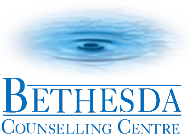A variety of approaches may be used depending on the individual needs of the client. Solution-Focused Brief Therapy focuses on what clients want to achieve through therapy rather than on the problem or problems that made them seek help. The approach does not focus on the past, but instead, focuses on the present and future. Counsellor often uses this approach with various life coaching techniques and worksheets she had created. This assists clients to achieve their goals and achieve lasting change.
Cognitive Behavioral Therapy (CBT) - CBT has two aspects: behavior therapy and cognitive therapy. Behavior therapy is based on the theory that behavior is learned and therefore can be changed. Cognitive therapy is based on the theory that distressing emotions and maladaptive behaviors are the results of faulty or irrational patterns of thinking. Therefore, therapeutic interventions are aimed at replacing such dysfunctional thoughts with more rational cognitions, which then leads to an alleviation of problem thoughts, emotions, and behavior.
Person-Centered Therapy focuses on the client with genuineness and honesty with real empathy, respect, and acceptance. There is unconditional positive regard for the client which allows the client to feel safe and secure within the counselling environment.
Cognitive Behaviour Therapy (CBT) involves recognizing distorted thinking and learning to replace thoughts with more realistic substitute ideas.
Psycho-Education - involves giving the client information about the mental health disorder, including its occurrence, symptoms and related difficulties, origins, diagnosis, and recommended treatments.
Theophostic Counselling - only for face-to-face, individual counseling.
Motivational Interviewing - assists to build the motivation for change in clients who are either hesitant or who are reluctant to change. Discrepancies between clients' current behavior and their goals are highlighted as a vehicle to trigger behavior change.

